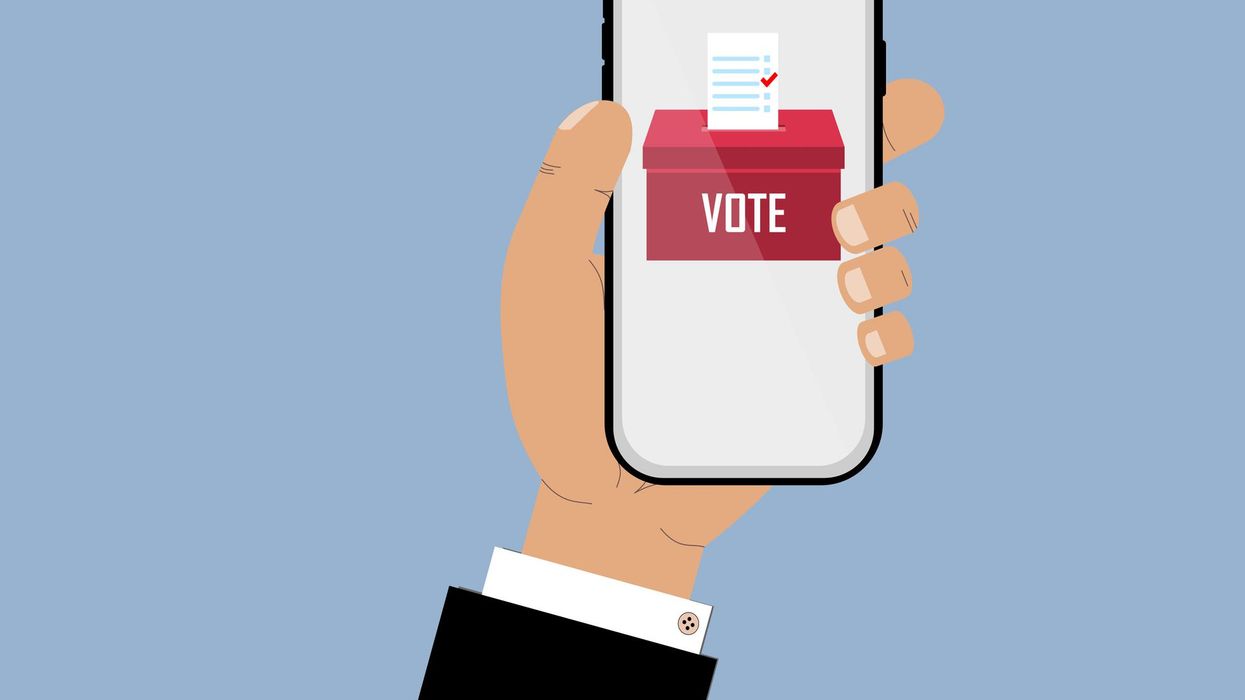For many people, modern technology makes voting online a no-brainer. But implementing such a system nationwide presents many risks and challenges.
To assess the opportunities and pitfalls of remote digital voting, the Center for Security in Politics at the University of California, Berkeley announced Wednesday the formation of a working group that will rigorously study the issue. The goal is to develop best practices for election officials who want to offer safe and secure digital voting options.
While not yet widely used, digital voting is already an option for overseas military and civilian voters in 31 states and disabled voters in eight states. Proponents see it as an opportunity to make voting more accessible, especially during natural disasters or other emergencies.
The Covid-19 pandemic highlighted the need to further study the feasibility of online voting. A recent report by the Election Assistance Commission found online balloting rose in popularity during the 2020 election, when voters were taking advantage of new opportunities. In last year's general election, more than 330 jurisdictions across eight states used mobile voting.
"How people think about — and participate — in voting is changing," said Janet Napolitano, founder and faculty director for the Center for Security in Politics. "We cannot turn a blind eye to the lessons of the 2020 election or overlook the voters who face inherent barriers to voting. We need academically rigorous, evidence-based standards that will guide the development of safe and secure remote balloting technology."
There are no national standards regulating the use of remote digital voting, which presents security and privacy concerns. The working group will dive into the potential challenges of casting a ballot online, such as voter and device authentication and vote verification.
"As technology changes, we must continually reassess opportunities to keep voting not only safe, secure and resilient, but also accessible for all Americans," said Mike Garcia, a cybersecurity expert and member of the working group.
Many election security experts strongly oppose remote digital voting because they say it is highly susceptible to hacking and does not provide the paper backup one gets when voting by mail or in person. And for election officials in jurisdictions where it is allowed for certain voters, there is little guidance on best practices.
"Having a report from a balanced group of experts can help inform the discussion, and importantly give guidance to election officials who are frequently caught in the middle, unsure of what is the 'least dangerous' path forward," said Jeremy Epstein, a voting security expert and member of the working group.
In addition to Epstein, the working group will consist of academic researchers, election administrators, cryptographers, and cybersecurity and election security experts, including:
- Ben Adida, executive director of VotingWorks.
- Michelle Bishop, voter access and engagement manager at the National Disability Rights Network.
- Allie Bones, assistant secretary of state for Arizona.
- Josh Benaloh, senior cryptographer at Microsoft Research.
- Henry Brady, professor in the Goldman School of Public Policy at UC, Berkeley.
- Anthony Fowler, professor in the Harris School of Public Policy at the University of Chicago.
- Michael Frias, CEO of Catalist.
- Mike Garcia, a cybersecurity expert who previously worked at the National Institute of Standards and Technology.
- Matt Masterson, former senior cybersecurity advisor at the Department of Homeland Security.
- Amber McReynolds, founding CEO of the National Vote at Home Institute.
- Maurice Turner, cybersecurity fellow at the Alliance for Securing Democracy.
- Mark Weatherford, chief information security officer at AlertEnterprise and chief strategy officer at the National Cybersecurity Center.




















Trump & Hegseth gave Mark Kelly a huge 2028 gift